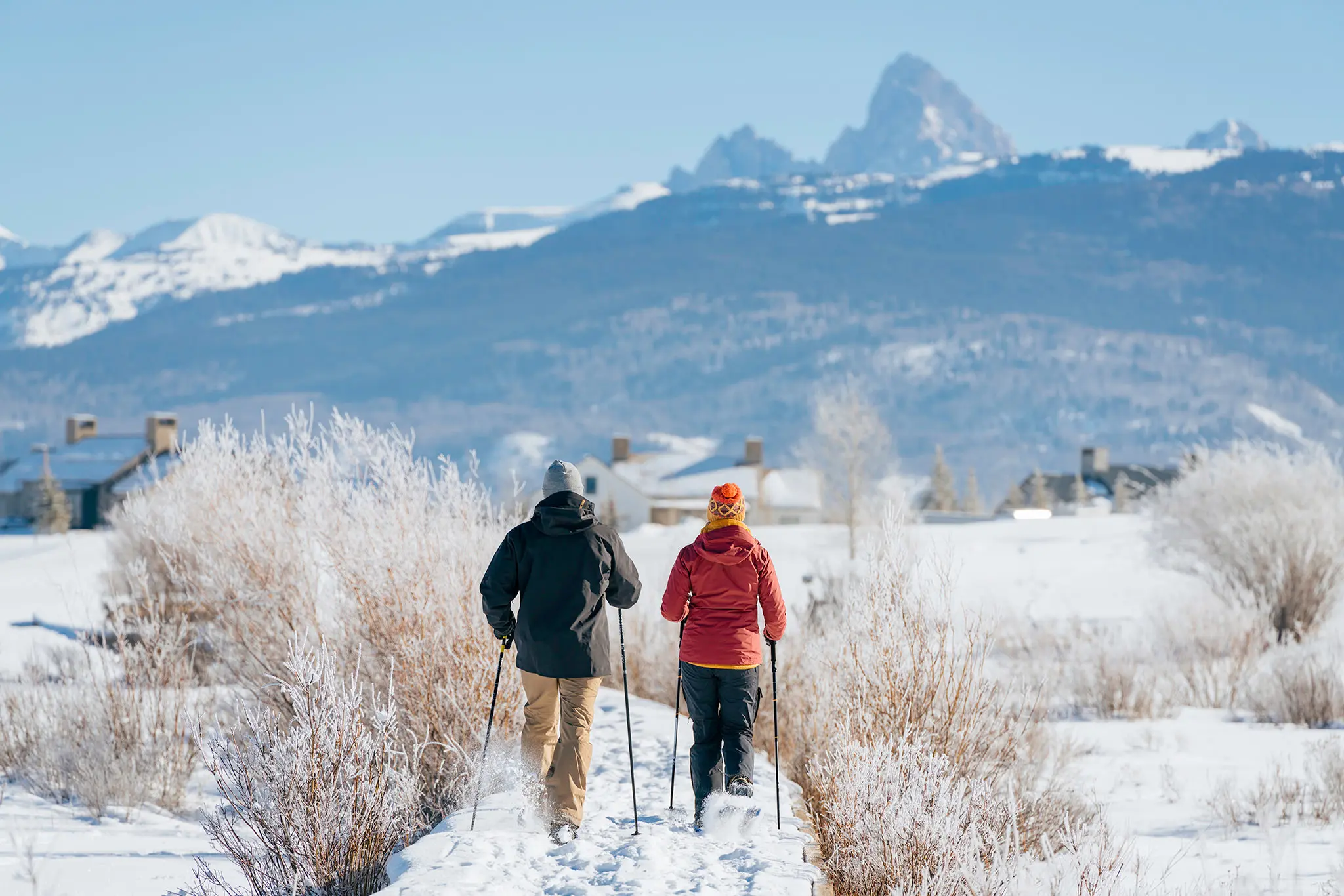A signature course by a famed golf pro is nice, but these new communities are enticing non-golfers with spas, gyms, farm-to-table restaurants, French wine courses, and lakes.
Though he is an agent to a number of professional golfers, golf wasn’t the only thing Dominik Senn was interested in when he founded Panther National, a private residential community just outside Palm Beach. “I believe in offering more than just a place to call home,” he tells Robb Report. “I’m committed to providing an experience that encompasses fitness, wellness, and social connection.” So, while golf is at the heart of the development, it’s just one piece of a more elaborate puzzle Senn wanted to create.
Panther National is unlike many existing clubs in the area, which is exactly what Senn wanted: “When my wife and I settled here, we found the combination of stiff regulations, uniform golf courses, and dimly lit clubhouses left much to be desired.” Many of his own clients felt the same, he says, thus prompting a golf community blending European-style links and massive dunes on the golf course, “complemented by Michelin-inspired dining in facilities reimagined as inviting lounges rather than traditional restaurants.”
Those kinds of high-end luxury amenities have become more common, but Senn took it a step farther by breaking away from traditional Florida architecture, offering new homeowners the chance to buy estate homes designed by Max Strang, featuring Tesla roof shingles, as a way to attract the type of discerning clientele that is typical of the area. The club offers different levels of membership, and prospective members are required to buy a social or golf membership with the purchase of a property. Golf Digest reported that initiation fees start at $500,000.
The days of a celebrity-designed golf course being the main anchor of a new golf community are quickly transitioning to more upscale amenities for buyers with varied interests. The departure from the look of a normal golfing community is even more pronounced in other developments, to the point where golf is no longer the primary reason for moving in.
For Derek and Lauren Lunka, hitting the links was not even a consideration when they bought a property at the Cliffs at Keowee Springs in Six Mile, S.C. “We are not golfers, so the food and wine program at The Cliffs was a huge attraction for us,” says Derek, an investment advisor who relocated from Austin, Texas. So was Lake Keowee and the lifestyle it offered their young family. From the community’s beach club to the new Lake Club and Keowee Springs Clubhouse, both of which have opened in the last year, the Lunkas don’t need golf to live the good life. “We wanted a neighborhood that was amenity rich,” he says, ticking off the pools, boat docks, restaurants, gatehouse, and wellness center.
Senn’s project and the Lunkas’ decision mirror what Steve Ellis, a realtor on Kiawah, SC, is seeing with buyers on the island community there. “What initially draws people to places like Kiawah are miles of beachfront,” he says. “But once people get here, they realize there’s so much more to the island.” Outdoor activities as well as arts and conservation organizations foster a sense of community on the island, notes Ellis, but homeowners need not be members of the private club to participate in those.
One of the unique features of the Cliffs are its seven communities that stretch south of Asheville, N.C., and continue into western South Carolina. Being a member at one club offers membership at the other six, but the Lunkas say they have seen more families moving into the lake communities, Keowee Springs and Keowee Falls.
The approach seems to be working. Fueled by the pandemic, the Cliffs saw real-estate sales totaling $442,927,930 across 586 property transactions for 2021, a 28 percent increase in transactions and a 29 percent increase in volume since the pandemic started. In 2023, transactions and volume both declined by 13 percent, but the Cliffs still reported sales of $355,583,076 across 339 transactions, with the average home price coming in just under $2 million.
Tributary in Driggs, Idaho, has also seen record sales. The company has reported nearly $200 million in sales since 2021, with 2023 being its strongest year since its launch. Bruce and Laura Linger decided they wanted to live in a golfing community but with access to outdoor sports. Traditionally, the Chicago family had traveled to better-known ski towns such as Aspen and Park City, but Bruce wanted to find “a little less well-known” place.
On the west side of the Tetons, Tributary offered a 1,500 low-density private community with everything they were looking for, including golf, and a small-town feel. “We love the town of Driggs with the one traffic light,” said Bruce.
Similar to the Cliffs, Tributary has enjoyed an injection of capital that has buoyed its offerings, which now includes a farm-to-table restaurant and bar, seven fishing ponds, trails for cross-country skiing, and snowmobiling, ice-skating rink, archery and tomahawk-throwing center, and a members-only ski lounge at the Grand Targhee Resort base.
Like the Lingers, the Lunkas say the people in their community have made a big difference for them. Despite the high costs of living, Derek says he is seeing value. “Access to seven different clubs and the costs of improved amenities are adding to the price,” he says. “The fees are going up, but you’re seeing why and you have tangible things you can see and touch that make it so real, and it doesn’t feel as bad.”
